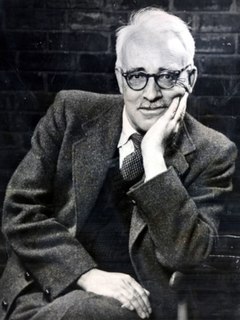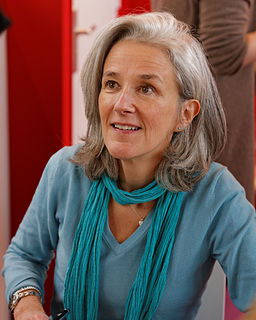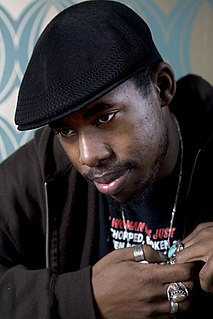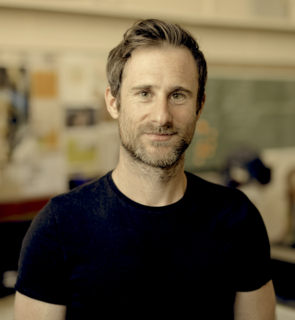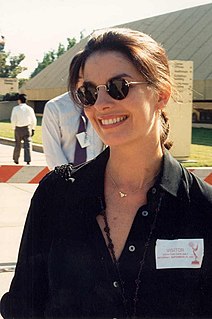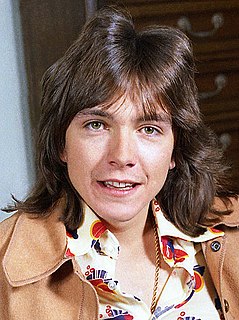A Quote by Frank O'Connor
All I know from my own experience is that the more loss we feel the more grateful we should be for whatever it was we had to lose. It means that we had something worth grieving for. The ones I'm sorry for are the ones that go through life not knowing what grief is.
Related Quotes
I wanted to say sorry, I wanted to tell her I could not forget the roundup, the camp, Michel's death, and the direct train to Auschwitz that had taken her parents away forever. Sorry for what? he had retaliated, why should I, an American, feel sorry, hadn't my fellow countrymen freed France in June 1944? I had nothing to be sorry for, he laughed. I had looked at him straight in the eyes. Sorry for not knowing. Sorry for being forty-five years old and not knowing.
I had to learn to think, feel, and see in a totally new fashion, in an uneducated way, in my own way, which is the hardest thing in the world. I had to throw myself into the current, knowing that I would probably sink. The great majority of artists are throwing themselves in with life preservers around their necks, and more often than not it is the life preserver, which sinks them. Nobody can drown in the ocean of reality who voluntarily gives herself up to the experience. Whatever there be of progress in life comes not through adaptation but through daring, through obeying the blind urge.
I always encourage people who had a loss of any kind that you find something to focus on that takes you out of that horrific sorrow. And you have to go through it. No way out but through in the grief. But don't remain in the grief. You know, find something that you can nurture as you would that being that you loved.
Remember, whatever you focus upon, increases...When you focus on the things you need, you'll find those needs increasing. If you concentrate your thoughts on what you don't have, you will soon be concentrating on other things that you had forgotten you don't have-and feel worse! If you set your mind on loss, you are more likely to lose...But a grateful perspective brings happiness and abundance into a person's life.
My books have done extremely well, I know. But I don't honestly feel much different from when I began to write. I still think we have a long way to go. I suppose my name means more in Nigeria today than it did five years ago. But I feel the job that literature should do in our community has not even started. It's not yet part of the life of the nation. We are still at the beginning. It's a big beginning, because now we are catching the next generation in the schools. When I was their age, I had nothing to read that had any relevance to my own environment.
I’m sorry. I was just thinking of that stupid song, ‘Seasons in the Sun.’ You know, ‘we had joy, we had fun, we had seasons in the sun.’ Good grief, I should be a mental patient. (Cassandra) You have more strength than any warrior I have known. Don’t ever apologize to me again for those few times when you show your fear to me, Cassandra. (Wulf)
In that inevitable, excruciatingly human moment, we are offered a powerful choice. This choice is perhaps one of the most vitally important choices we will ever make, and it determines the course of our lives from that moment forward. The choice is this: Will we interpret this loss as so unjust, unfair, and devastating that we feel punished, angry, forever and fatally wounded-- or, as our heart, torn apart, bleeds its anguish of sheer, wordless grief, will we somehow feel this loss as an opportunity to become more tender, more open, more passionately alive, more grateful for what remains?
Sorry means you feel the pulse of other people's pain as well as your own, and saying it means you take a share of it. And so it binds us together, makes us trodden and sodden as one another. Sorry is a lot of things. It's a hole refilled. A debt repaid. Sorry is the wake of misdeed. It's the crippling ripple of consequence. Sorry is sadness, just as knowing is sadness. Sorry is sometimes self-pity. But Sorry, really, is not about you. It's theirs to take or leave.
And should I not, had I but known, have flung the machine this way and that, once more to feel it live under my hand, have sported in the sky and laughed and sung, knowing that never after should I feel so free, so sure in hazard, so secure, riding the daylight in the pride of youth? No more horizons wider than Hope! No more the franchise of the sky, the freedom of the blue! No more! Farewell to wings! Down to the little earth!
When you go through hell, your own personal hell, and you have lost - loss of fame, loss of money, loss of career, loss of family, loss of love, loss of your own identity that I experienced in my own life - and you've been able to face the demons that have haunted you... I appreciate everything that I have.
He recognized her despite the uproar, through his tears of unrepeatable sorrow at dying without her, and he looked at her for the last and final time with eyes more luminous, more grief-stricken, more grateful than she had ever seen them in half a century of a shared life, and he managed to say to her with his last breath: “Only God knows how much I loved you
I think we have to go through everything we go through in our life, and I believe my purpose in life was to teach self-reliance. So I had the experience of relying on myself very early in life in order to have that knowing, because otherwise I would've just read about it. I think of it now as a great advantage that I had. It certainly taught me to rely upon myself at a very young age. And that's what I've been teaching since I was a little boy.
But that had been grief--this was joy. Yet that grief and this joy were alike outside all the ordinary conditions of life; they were loopholes, as it were, in that ordinary life through which there came glimpses of something sublime. And in the contemplation of this sublime something the soul was exalted to inconceivable heights of which it had before had no conception, while reason lagged behind, unable to keep up with it.
